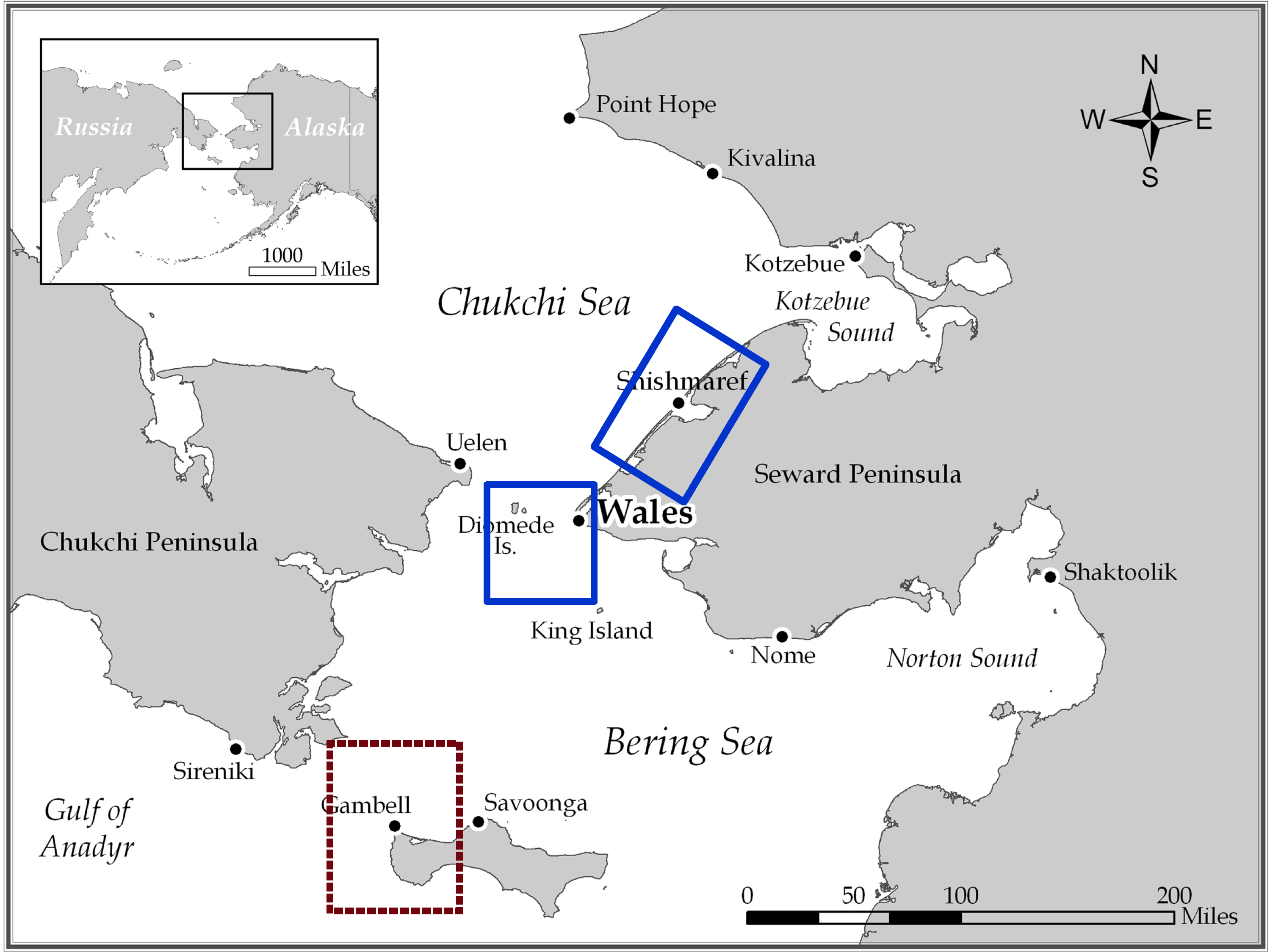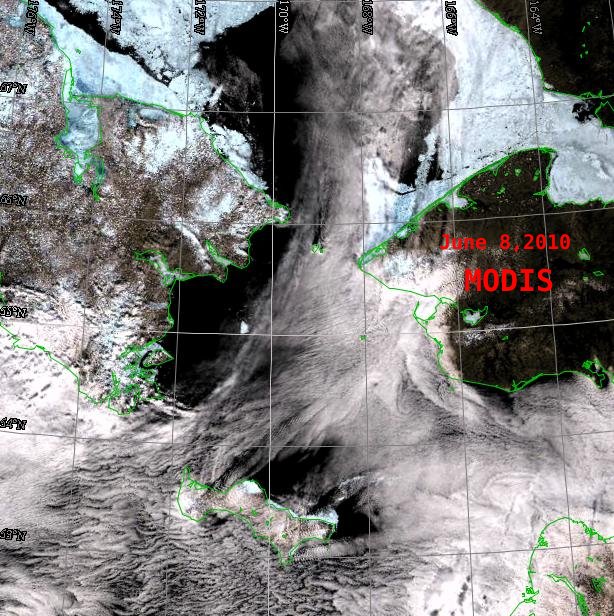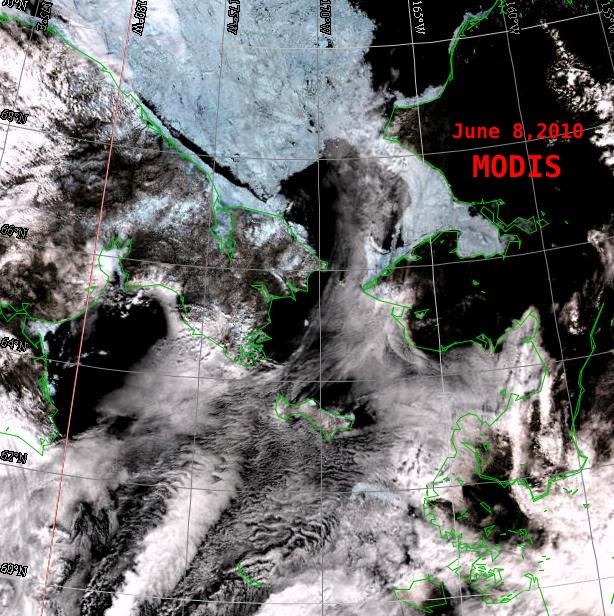Assessment of Current Ice Conditions Relevant to Distribution and Access of Walrus
Near St. Lawrence Island
The waters around St. Lawrence Island are rapidly losing the little remaining sea ice. There is still some persistent shorefast ice, especially east of Savoonga and along the south shore of the Island. The only area near the Island of significant ice floes is just offshore of the east end of the Island. Here there is about 2 tenths concentration of various size floes, most less than 100m in size. Winds have been light out of the south. Very little ice is left in the Gulf of Anadyr, so there are few floes moving northwest past Gambell.
Wales to Shishmaref
Remnants of shorefast ice still exist along the shore between Wales and Shishmaref. Offshore of Wales the waters are open with some small floes moving northward under the strong southerly winds. The shorefast ice off Shishmaref is beginning to really breakup in place. There are very wide north-south leads extending from near shore to the open water north and northwest of Shishmaref. There is still heavy ice northeast of Shishmaref to Kotzebue Sound. Winds are light around Shishmaref.
5 and 10 Day Outlook: June 11 to June 21
A low-pressure system will move into the Central Bering Sea over this coming weekend and affect the winds through Monday, June 14. These winds will help move out the shorefast ice off Shishmaref. East to southeast winds at 25 knots expected on Monday, June 14. The low will rapidly diminish in the central Bering Sea on Tuesday, June 15 and southerly winds will dominate the northern Bering Sea over the following five days.
Arrows show wind direction and wind speed in knots





Remote Sensing Images


Observations and Comments
Observations of Sea Ice Development
11 June 2010 - Hajo Eicken - Update on Ice Drifters
The drifter that was stuck temporarily in landfast ice north of the shoal ice Curtis Nayokpuk describes below, has come loose during the past week and is tracking to the northeast (see drifter data map above).
The other drifters released in Wales and Gambell have sent important data for a few weeks, showing us how ice movement is helping walrus move north. However, our partners with the Arctic Buoy Program who provided the buoys have also learned that the buoy types typically released in open water (with a little parachute/drogue that helps the buoy track the current) may not work that well in the Arctic. The buoy sensors indicate that on the other buoys strong currents and/or ice may have played a role in pulling the buoys under. This needs to be studied further but can help improve future buoy designs.
10 June 2010 - Curtis Nayokpuk - Comments from Shishmaref
Sea ice along the coast of Shishmaref is still stable and used by hunters out to leads north and northeast along shore ice edge. Early spring melt-water on top of sea ice has drained off and travel and hunting will continue along shore ice as conditions permit. To date, up to 13 boats and crews have launched boats approximately 9 miles north and northwest of Shishmaref to hunt in open, ice-free areas for Bearded Seal ('Oogruk'); local drying racks show a successful season. Boat travel is limited to open sea by a north-south line of pack ice and grounded ice ridges along open areas west of the boat launch. This is a line of shallow water (bathymetric 20 fathoms [120 feet]) that has grounded thick ice moving east with sea current. Pending weather and the Wales shoal ice breakup, hunters are waiting to venture further out to hunt walrus.
